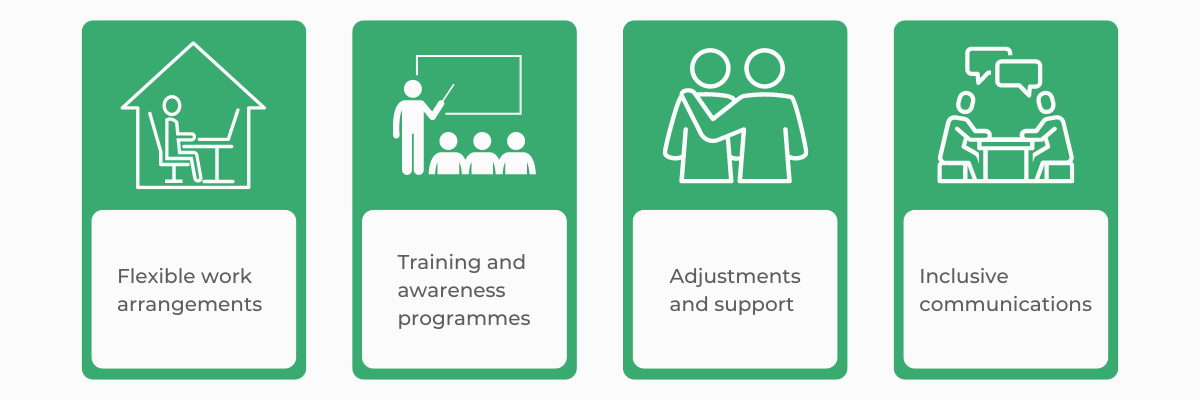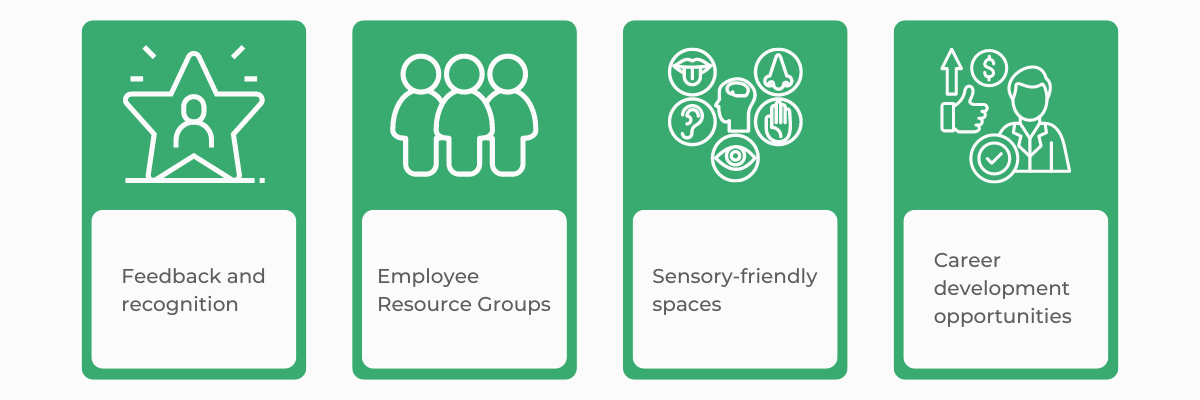Embracing Neurodiversity: Creating Neuro-inclusive Communities and Workplaces
While Diversity, Equity & Inclusion (DE&I) has become a core element of organisational practices, with 92% of organisations having a DE&I policy according to 2023 research from Neurodiversity in Business and Birbeck University, only 22% of those surveyed said these policies included a focus on neurodiversity. Embracing neurodiversity is a crucial pillar in fostering truly inclusive communities, particularly within the workplace.
Celebrating the unique strengths and perspectives that neurodivergent individuals bring to the table is a fundamental step to building inclusive cultures. Recognising the value of neurodiversity is also essential to helping break down barriers that neurodivergent individuals may face in the workplace, challenging misconceptions and stereotypes, and creating environments where everyone can thrive.
Embracing Neurodiversity in the Workplace for a More Inclusive Society
Gradual social change has played a pivotal role in driving a greater focus on inclusivity and neuro-inclusion. In recent years there has been increased awareness and education on neurodiversity, with many organisations promoting specific campaigns such as National Inclusion Week, that aim to advocate for neuro-inclusivity in workplaces and across communities. Similarly, content around neurodiversity has grown and gained wider audiences, with series such as Chris Packham’s “Inside Our Autistic Minds” receiving extensive praise. As a result of these developments, societal changes are shifting to promote wider acceptance and understanding of neurodiversity. Therefore, we must continue to ensure that platforms are available to amplify the voices of neurodivergent individuals and allies.
Organisations can also play a significant role in promoting neurodiversity in the workplace and empowering neurodivergent talent. By implementing inclusive hiring practices, providing suitable adjustments, and fostering inclusive cultures; companies can harness the unique talents and perspectives of neurodivergent individuals, leading to greater innovation and creativity.
How Can Organisations Achieve This?
There are a number of ways organisations can work towards fostering neuro-inclusion. These include:
Flexible work arrangements: Offering employees the option to work flexible hours or remotely to accommodate their needs, which may include having a different schedule or work environment.
Training and awareness programmes: Providing training for all employees on neurodiversity to increase understanding, empathy, and inclusive approaches. This could include e-Learning, workshops or webinars among others, and can help to generate awareness about the variety of neurodifferences, and how to support colleagues effectively.
Adjustments and support: Working with individuals to identify relevant adjustments and support that may be useful for them, such as assistive technology, additional equipment, access to quiet spaces, and flexibility.
Inclusive communications: Supporting alternative communication preferences by offering a range of methods when communicating information, such as a video explanation or visual guide, alongside written text. Implementing a standardised formatting that is neuro-inclusive, as such a Sans Serif font, at 12 point minimum with well-spaced text can also support neurodivergent colleagues.
Feedback and recognition: Feedback can be useful to support individuals to identify their opportunities for growth and to receive recognition for their work. Ensuring this is done in a positive, constructive manner, with clear areas for development, is important to support individuals’ development, and their confidence.
Employee Resource Groups: Establish an Employee Resource Group or network for neurodivergent individuals and allies to connect, share experiences, and provide mutual support.
Sensory-friendly spaces: Creating sensory-friendly workspaces by adjusting artificial lighting, minimising noise, and incorporating better ventilation, can create a more comfortable environment for neurodivergent employees. This also gives individuals a more welcoming space to take breaks in if needed.
Career development opportunities: Offering opportunities for professional development, training, and advancement can ensure that neurodivergent employees have access to equal opportunities for growth and career progression within your organisation. Monitor the opportunities provided to demonstrate your support and investment into neurodivergent colleagues.
In conclusion, implementing these strategies can help create a culture of acceptance and support within workplaces and communities, and to empower neurodivergent individuals in making the most of their unique skills and perspectives. These developments are not just a moral imperative, but also a catalyst for wider positive social change.
By championing inclusivity, challenging stigma, and advocating for the rights of neurodivergent individuals, we can create a more vibrant, resilient, and compassionate workforce.
Discover how Neurodiversity Smart®️ your organisation is across the whole business with our assessment and accreditation process. You’ll get a comprehensive report with areas for development and improvement, and a roadmap for future action. Find out more about our Neurodiversity Smart®️ assessment and accreditation today.



